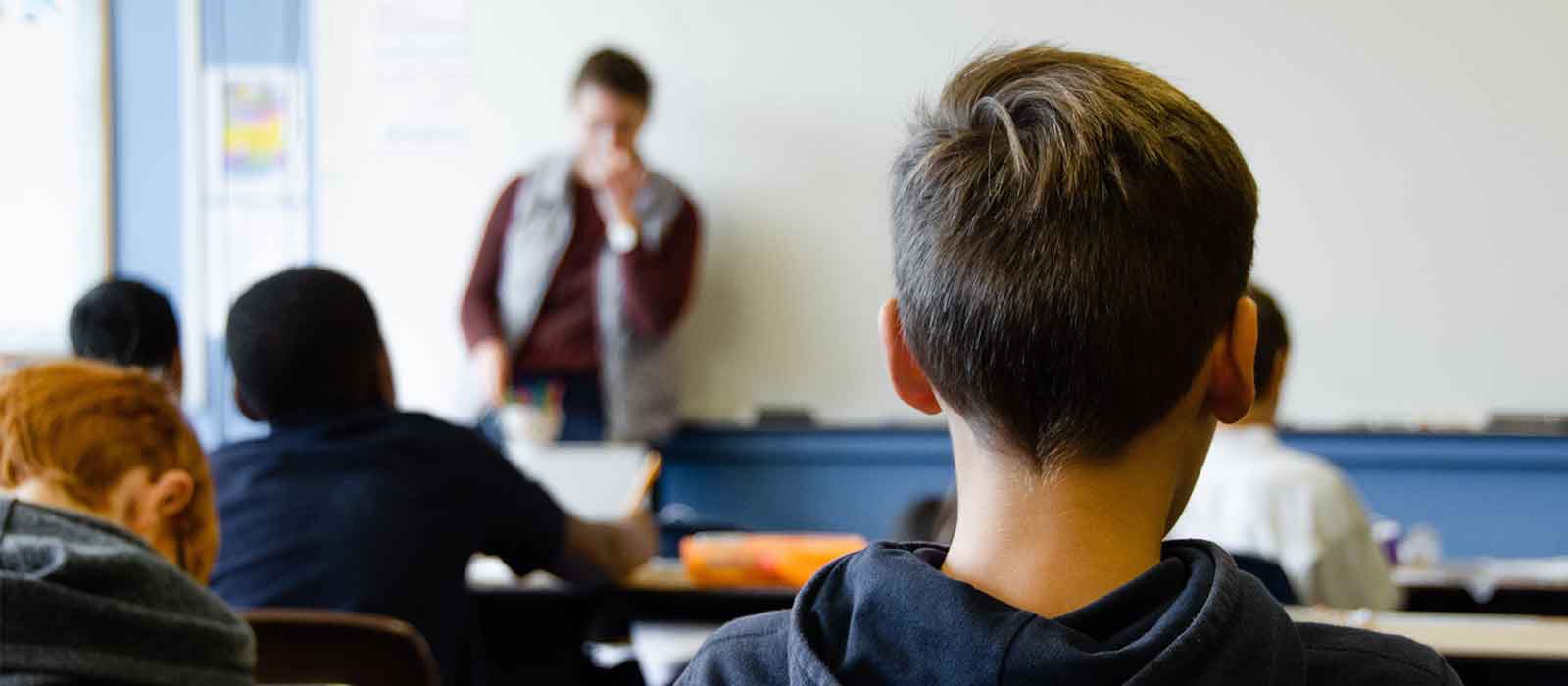
Two-thirds of BC teachers surveyed reported a greater workload than before the pandemic and four out of five teachers reported worse mental health this school year, according to new research conducted by a team of researchers from the UBC Human Early Learning Partnership (HELP) based at faculty of medicine’s School of Population and Public Health (SPPH) and the Centre for Health Evaluation and Outcome Sciences (CHÉOS), in partnership with the BC Ministry of Education and the BC Teachers’ Federation.

Dr. Anne Gadermann
Co-led by Dr. Anne Gadermann, assistant professor at SPPH and scientist at CHÉOS, and Dr. Eva Oberle, assistant professor at SPPH, the goal of the study was to learn more about how the COVID-19 pandemic has impacted teachers.
“What we have attempted to do with this research is provide a sense of where teachers are at in terms of their mental health and well-being, and what supports are likely to be effective in responding to their needs,” says Dr. Gadermann.
More than 1,200 teachers across BC responded to the survey in February 2021. On average, respondents reported just over 15 years of teaching experience, with about half of them elementary school teachers and a quarter of them secondary school teachers.
Around the world, COVID-19 has led to school closures in 165 countries, impacting approximately 63 million teachers and hundreds of millions of children. In BC, schools were closed for in-classroom learning for three months at the end of the last school year. But unlike many other jurisdictions, the doors remained open this entire school year in BC.
“The trends that we identified for teachers were clear,” says Dr. Oberle. “The BC teachers who responded to the survey generally reported deteriorated mental health 11 months into the pandemic. They also tended to report fewer opportunities to connect with students, parents, and colleagues, and unmet needs for students.”

Dr. Eva Oberle
“It has been a challenging year for teachers,” adds Dr. Gadermann. “Two out of five teachers reported being now more likely to seek to leave the profession than before the pandemic.”
The study team also looked into how support within schools and communities, from the union and from the Ministry of Education impacted teachers’ well-being.
“We found that more avenues of support were associated with higher well-being. For example, teachers who reported feeling more supported were more likely to report better mental health,” says Dr. Monique Gagné, research associate at HELP and CHÉOS.
“We can think of these supports as protective for teachers and an important area to focus on as we look forward,” elaborates Dr. Kimberly Thomson, postdoctoral researcher at HELP and CHÉOS. “Focusing on teacher support could be a critical first step for school boards and the Ministry of Education as they work to improve teacher well-being in the long-term.”
This report was produced and published by UBC’s Human Early Learning Partnership (HELP) in June, 2021. It was funded by a Social Sciences and Humanities Research Council (SSHRC) COVID-19 Partnership Engagement Grant, which was received in partnership with the BC Ministry of Education. This research informed by the partnership with the BC Ministry of Education as well as a partnership with the BC Teachers’ Federation.
A version of this story was originally published by the Centre for Health Evaluation and Outcome Sciences.